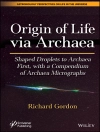This book addresses issues arising from discharge of effluents from sugar industry on to surrounding land or into a water body such as physicochemical properties of soil, changes in the micro flora, quantification of soil enzyme activities as influenced by effluents. Disposal of effluents without neutralization has become general practice. These effluents are chemically heterogeneous, contain organic and inorganic pollutants including, sugar baggage, molasses, carbonates, bicarbonates. The impact of sugar industry effluents on microbial activities in terrestrial ecosystem is scanty. There is also significant interest in the study of soil enzymes because such effect reflects the potential capacity of a soil to perform certain biological transformation of soil fertility.
Cuprins
Chapter 1 Soil collection.- Chapter 2 Soil physicochemical properties.- Chapter 3 Soil microbiological properties.- Chapter 4 Soil incubation studies.- Chapter 5 Soil protease.- Chapter 6 Soil cellulose.- Chapter 7 Soil amylase.- Chapter 8 Soil invertase.
Despre autor
Dr. Maddela Naga Raju
Qualification : M.Sc (Microbiology in 1998), B.Ed (Biology in 2000), M.Phil (Microbiology in 2006), Ph.D., (Microbiology in 2012)
Teaching Experience: 13 years (Taught undergraduates and graduates on Microbiology in India during 1998-2012. During this, I finished my M.Phil and Ph.D., in 2006 and 2012, respectively).
Postdoctoral teaching experience: 1 year (Taught undergraduates and graduates on Microbiology in India during 2012-13)
Postdoctoral research experience: 2 years in Ecuador (Universidad Estatal Amazonica, Puyo during 2013-15). Worked on microbial remediation of crude oil contaminated soil.
Publications: 20 (Cumulative impact factor 10.01; SCOPUS indexed 13; h-index 2, Citations in google scholar 26 and in Research Gate 13)












